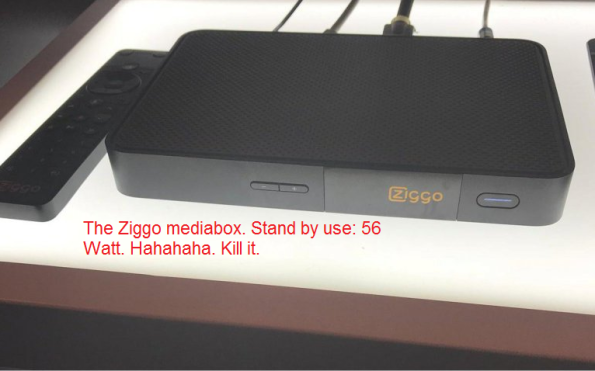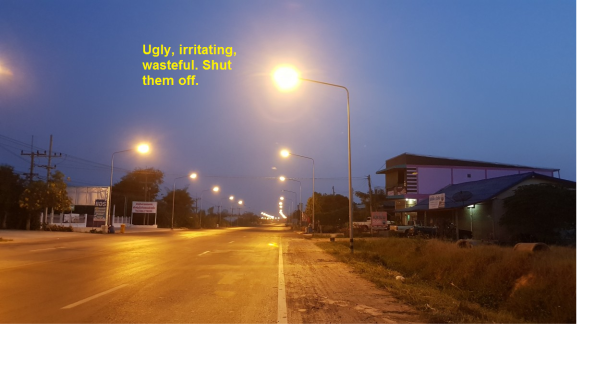From Merijn Knibbe The EU has announced a ‘Green Deal‘. Good. But at this moment, this only a plan for a plan. But there’s no time to waste. So, what to do while we wait? Let’s unleash the economists’ neurotic obsession with efficiency! Identify ‘fallen fruit’, energy gobbling activities which shouldn’t have been there in the first place. And get rid of it. Three examples, non of which requries massive investment or path breaking research: Media boxes. Problem: extreme stand by use. Solution: waiting for Netflix (for a few seconds). Almost every household has a media box, nowadays. And we literally can’t wait to see Netflix. Which means that these boxes are on ‘stand by’ which uses lots of energy. In the case of Ziggo media boxes: 56 Watt. Suppose that 100.000.000 households in the EU
Topics:
Merijn T. Knibbe considers the following as important: Uncategorized
This could be interesting, too:
tom writes The Ukraine war and Europe’s deepening march of folly
Stavros Mavroudeas writes CfP of Marxist Macroeconomic Modelling workgroup – 18th WAPE Forum, Istanbul August 6-8, 2025
Lars Pålsson Syll writes The pretence-of-knowledge syndrome
Dean Baker writes Crypto and Donald Trump’s strategic baseball card reserve
from Merijn Knibbe
The EU has announced a ‘Green Deal‘. Good. But at this moment, this only a plan for a plan. But there’s no time to waste. So, what to do while we wait? Let’s unleash the economists’ neurotic obsession with efficiency! Identify ‘fallen fruit’, energy gobbling activities which shouldn’t have been there in the first place. And get rid of it. Three examples, non of which requries massive investment or path breaking research:
Media boxes. Problem: extreme stand by use. Solution: waiting for Netflix (for a few seconds). Almost every household has a media box, nowadays. And we literally can’t wait to see Netflix. Which means that these boxes are on ‘stand by’ which uses lots of energy.
In the case of Ziggo media boxes: 56 Watt. Suppose that 100.000.000 households in the EU have such a box this translates to 5.600 Mega Watt or twice the capacity of the largest coal fired power station in the world. How to do this: charge Ziggo and comparable companies (which own the mediaboxes, have a very good administration of these and are able to remote controle them!) with ten Euro per year per Watt (maximum use in standby mode). Use the money to lower VAT on labor hours charged by repair companies (including dentists and car repair and maintenance, the largest sectors of these).

Streetlights along highways. Problem: they are turned on. Turning off highway streetlights will make for more pleasant driving, less energy use and a more beautiful world while it’s good for wildlife, too (especially on quiet roads this does not make any difference for safety, on less quiet roads it might have).

Tax Kerosene (or freight or passenger miles). Strong points of air transport: high occupancy rates and impressive energy efficiency gains. Weak point: rapidly increasing numbers of passengers. Achilles heel: freight. As is well known, kerosene is contrary to gasoline not taxed, giving energy guzzling planes an unfair advantage and making travelling cheap for the wrong reason. This unfortunate state of events, in the end, based on a 1944 treaty stating:
“WHEREAS the future development of international civil aviation can greatly help to create and preserve friendship and understanding among the nations and peoples of the world, yet its abuse can become a threat to the general security; and
WHEREAS it is desirable to avoid friction and to promote that co-operation between nations and peoples upon which the peace of the world depends;
THEREFORE, the undersigned governments having agreed on certain principles and arrangements in order that international civil aviation may be developed in a safe and orderly manner and that international air transport services may be established on the basis of equality of opportunity and operated soundly and economically;
Have accordingly concluded this Convention to that end.”
Which is all true. But nowadays, CO2 has to be added to such lofty ideas. Meaning that kerosine has to be taxed. Or, when that’s too complicated, passenger miles have to be taxed. When companies have to pay for ‘spectrum’, why shouldn’t they pay for using air space? The companies already have the data. Or auction the rights to use national air space. Whatever. But: make it expensive. Which, of course, will mean that people with low incomes can’t fly from the Netherlands to the Turkish coast anymore. Compensate them with lower VAT rates. The very least we can do is taxing air freight, per gram. At this moment we’re using planes to fly horses from one continent to another. Which reminds me of the fable of the miller, his son and the donkey. Cooking the planet because we put horses on a plane. Tax it into oblivion. Now
